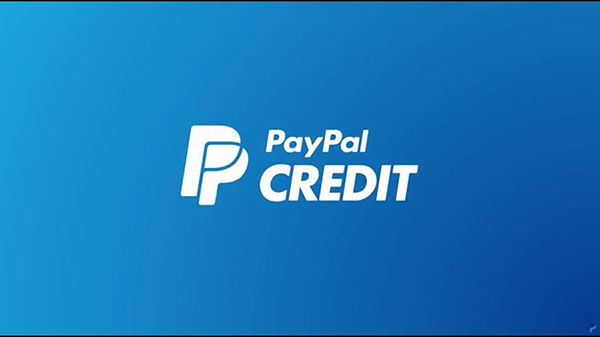These days, a good credit score is a requirement for everything from buying a home to setting up a cell phone contract. In many cases, it’s also a necessity if you want to rent an apartment.

That’s because a strong credit history proves that you make your payments on time and follow through on your financial obligations. This is especially important to potential landlords.
When a landlord is considering tenants, they will look at your credit report because they’re seeking someone who isn’t a financial risk and will be able to pay rent every month. So, what should you do if you’re trying to rent an apartment but don’t have any credit history yet? Keep reading to find out.
What are no credit check apartments?
No credit check apartments, often referred to as second chance apartments, offer a unique opportunity for individuals with no credit, poor credit, or a less-than-ideal rental history. Unlike traditional rental processes, these apartments do not require a credit history review as part of the application process. This approach can be a lifeline for those who might otherwise struggle to find housing due to their financial past.
How No Credit Check Apartments Work
Landlords of no credit check apartments prioritize other factors over credit history to assess a potential tenant’s reliability. These might include employment history, income stability, and rental references. By focusing on your current ability to pay rent rather than past financial difficulties, these landlords provide a chance to secure housing without checking your credit history.
Potential Drawbacks
While no credit check apartments solve a significant challenge for many, they’re not without their drawbacks. Some landlords may charge higher rent, additional fees, or require a larger security deposit to offset the risk associated with not checking a tenant’s credit. Additionally, these apartments may not be located in your desired area, and their quality or amenities might differ from those that conduct credit checks.
7 Ways to Rent an Apartment With No Credit History
Fortunately, it is possible to rent an apartment with no credit history. If you find yourself in this situation, let’s look at seven steps you can take.
1. Rent from an Individual Owner
Renting directly from a homeowner can offer more flexibility than dealing with large property management companies. Individual owners may be more open to discussing your situation and less bound by rigid credit check policies.
To find these listings, scour local classifieds, online platforms like Craigslist, or community bulletin boards. A personal touch, such as a direct phone call or a face-to-face meeting, can make a significant difference.
2. Explain Your Financial Situation
It can help to sit down with the individual who owns the apartment complex and give that person some backstory on your financial situation. Assuming that your reasoning makes sense, doing this could significantly improve your likelihood of getting approved.
Explain why you don’t have any credit history and what steps you’re taking to improve your finances. For instance, maybe you haven’t built your credit history because you’re debt-free. This means that you don’t have any debt payments and will have more cash flow available to pay rent every month.
3. Show Proof of Steady Income
If you have a low credit score and no credit history, a landlord will want to see some evidence that you can afford to pay your monthly rent. To demonstrate your proof of income when attempting to rent an apartment with bad credit, you can provide pay stubs or bank statements.
Ideally, your rent payments will be less than one-third of your monthly take-home pay.
That means if you earn $4,000 per month, your rent payments should be lower than $1,200. But what should you do if your monthly income is low and there’s no way you can keep the rent payments under one-third of your paycheck?
In this situation, it will help if you have an emergency fund. If you have enough money in savings to cover three to six months of rent payments, this may be enough to appease a landlord.
4. Offer to Move in Immediately
The last thing any landlord wants is to have empty rental properties because that means they aren’t earning any money. That person still has to make the mortgage payments and pay for repairs, and this costs a lot less when they’re earning rental income.
So, the landlord may be more willing to work with you if you can move in right away. If that person is still hesitant, you could offer to sign a short-term lease as a trial. If things go well, then you possibly extend the lease in the future.
5. Provide References
One of the best ways to earn a potential landlord’s trust is by providing references. Ask former employers, co-workers, or teachers to provide character references for you. This will show a potential landlord that you’re a hard worker with integrity.
And if you’ve rented an apartment in the past, you should ask your previous landlord for a reference and proof of on-time rent payments. This will go a long way toward showing that you’re committing to paying rent on time every month.
6. Ask Someone to Cosign for You
If your limited credit history is proving to be a big problem, you can ask a parent or friend to cosign the lease for you. An ideal cosigner is someone who already has a high credit score and can pass a credit check easily. Essentially, you get to take advantage of that person’s good credit history.
However, you should only ask someone to do this if you’re certain you can afford the monthly rent payments. If you can’t, that person will be on the hook for making those payments for you. And you could damage the credit they worked so hard to build.
7. Offer to Pay a Larger Security Deposit
If all the previous approaches fail, you could always offer to put down a larger security deposit. A security deposit is a sum of money you give your landlord as an insurance policy.
If you skip out on your rent payment or damage the apartment, your landlord gets to keep the deposit. However, if everything goes well, the deposit will be returned to you at the end of your lease.
Putting down a larger-than-normal security deposit could help a new landlord feel more comfortable renting an apartment to you. However, make sure the terms of your deposit are clearly outlined in your rental agreement.
Alternatives to No Credit Check Apartments
1. Rent a Room in a Shared Apartment or House
In this scenario, you would be renting a private bedroom within a shared living space with one or more roommates. Often, the landlord or property management company will only check the credit of the primary tenant, rather than all the roommates. This can be a viable option if you are unable to secure a lease on your own, but still want the privacy and independence of having your own bedroom.
2. Rent from a Family Member or Friend
Another alternative is renting from a family member or friend. If you have a close relationship with someone who owns a property and is willing to rent to you, this can be a suitable option.
Even in this situation, it is still a good idea to have a written lease in place to protect both the landlord and the tenant. A lease should clearly outline the terms of the rental agreement, including the rent amount, the length of the lease, and any rules or guidelines for the property. This can help to avoid misunderstandings or conflicts down the road.
Start Building Your Credit Today
Hopefully, a lack of credit history won’t prevent you from renting the apartment of your choice. But keep in mind, this is only a short-term solution. Going forward, you should be focused on building good credit so you don’t find yourself limited financially.
A good credit score takes time to build, but there are things you can begin doing now to move forward. Here are three ways you can start building your credit scores.
1. Become an Authorized User
One of the easiest ways to start building credit is by becoming an authorized user on someone else’s credit card. As an authorized user, you can take advantage of that person’s established credit history and begin building your own.
However, before becoming an authorized user, you should ensure that the person actually has good credit. If they stop paying on their credit card, it could end up hurting you more than it helps.
2. Apply for a Secured Credit Card
If you have zero credit history, it can be tough to take out a credit card. In that case, applying for a secured credit card may be the way to go.
With a secured credit card, you’ll pay a one-time security deposit to get approved for the card. This security deposit will serve as your credit limit and the amount you’re authorized to spend. It’s less risky for a lender since they aren’t technically loaning you any money.
3. Take Out a Credit Builder Loan
A credit builder loan is another good way to establish credit. Once you’re approved for the loan, the funds will be held in a bank account for you. From there, you’ll make payments on the loan until it’s paid in full.
And while you’re paying it off, the lender will report your payments to the three major credit bureaus. Once you’ve paid the loan, you’ll receive access to the money.
See also: How to Build Credit From Scratch
Bottom Line
When trying to rent an apartment with a poor credit score, you’ll likely encounter some challenges along the way. But fortunately, it is possible to rent an apartment with no credit history whatsoever. By applying the tips outlined in this article, it’ll be easier for you and the landlord to come to an agreement you’re both happy with.
But keep in mind, building strong credit should be your top priority going forward. A good credit score will make it easier for you to buy a home, take out a loan, and even land a job in the future. So begin taking small steps today to start improving your credit score.
See also: How to Get an Apartment With Bad Credit




